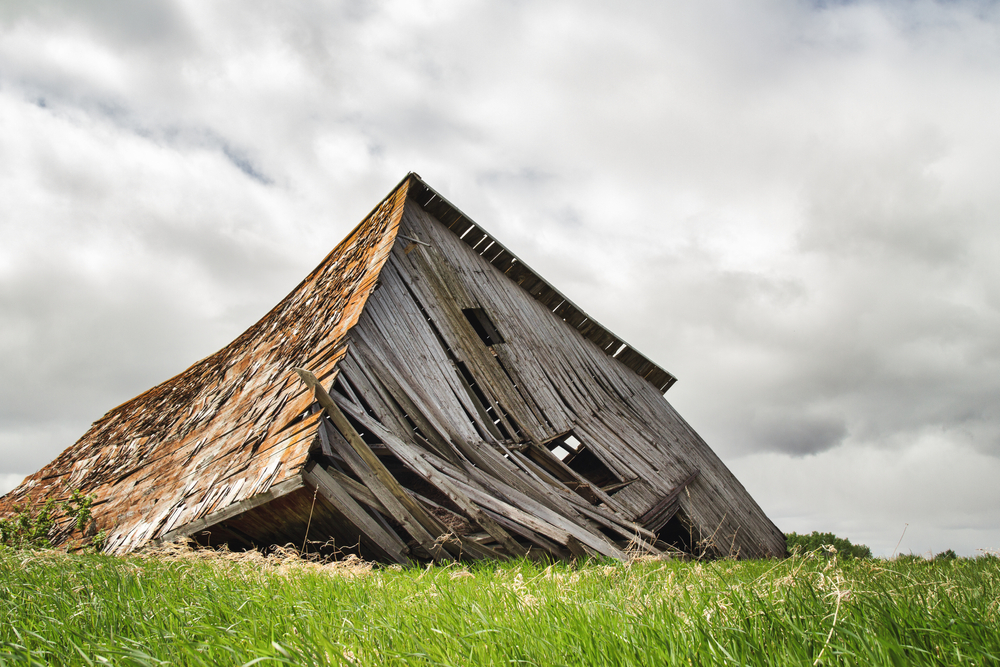Jenny Hall
Verses from the Dhammapada 154
Having become enlightened the Buddha said, “Now I have found you O Builder and never again shall you build this house. Your rafters are broken and the ridge pole is shattered. My mind has reached Nirvana and the end of craving.”
 ©
© shutterstock
“Now I have found you O Builder and never again shall you build this house. Your rafters are broken and the ridge pole is shattered. My mind has reached Nirvana and the end of craving.”
Traditionally, these are the Buddha’s words spoken on his enlightenment.
Enlightenment is the discovery of ‘choiceless awareness.” the release from the delusion of ‘I’ and all its suffering. Nearing the end of his spiritual search, Gautama, who was to become the Buddha, sat down under the Bodhi tree determined to solve the problem of suffering. Mara, Lord of the Passions, concentrated all his powers to test Gautama’s resolve. First, he tried to persuade him to abandon his quest and to return home, but was unsuccessful. Mara then conjured up alluring visions of his own daughters. Gautama, in deep meditation, remained unmoved. Realising that desire had failed to distract him, Mara attempted to arouse fear. He sent ferocious demons to terrify him. Gautama remained undisturbed. Defeated, Mara retreated. Gautama continued to sit through the night. In the morning, he looked up. The shining morning star penetrated his open heart. Gautama became the Buddha, the ‘awakened one.’ free from the delusion of ‘I’ and at one with all.
“Now I have found you O Builder and never again shall you build this house.”
Mara presents desire and attachment which create the delusion of ‘I’. The ‘house’ symbolises this delusion. We suffer because we are deluded into believing that each one of us is, like a house, solid and an entirely separate entity. We feel we need to defend ourselves form everything we encounter. We pursue objects endlessly. We use these objects like bricks to build a feeling of security. We identify with these defences. When they fail to assuage our feelings of vulnerability or naturally crumble, we yearn for bigger, better ones. In the following story, the wife’s insecurity illustrates this.
A poor fisherman and his wife live in a hut on the beach. On four occasions the fisherman catches but then spares a magical fish. Four times the fish rewards him with a wish. The fisherman allows his wife to make each one. She first wishes for a little cottage with roses around the door. However, it fails to satisfy her. Her second wish is for a grand mansion with pillars. The third wish replaces it with a turreted castle. Finally, even this is spurned and the wife wishes to be Lord of the Universe. The fisherman returns to the seashore. For the last time he casts his net. The sea surges and heaves. The fish leaps from the thundering waves. He commands the fisherman to return to his hut!
We not only chase phenomena, we also attempt to avoid or destroy anything that appears to threaten ‘me’. We are so busy pursuing these ends that the clarity of each changing moment is obscured. We remain ignorant of reality.
“Your rafters are broken, the ridgepole is shattered.”
The ridgepole represents this ignorance. The rafters are the passions, desire and hate. The house, the delusion of ‘I’ is created by a constantly changing consciousness coloured by past impressions and intentional actions. These condition our thoughts and reactions to new experience.
For example, like many families after the war, we lived in a small, one bedroom flat. We shared the bathroom with another family. There was no running hot water. I had an aunty who was an artist. She lived in a beautiful, detached bungalow. It was filled with cream furniture which she had decorated with exquisite garlands of multicoloured flowers. As a child, I secretly longed to live in such a house. This longing was exacerbated by my aunty’s daughter who, on visiting our flat exclaimed “you live in a rubbish house!” Over the years, a few of the houses around us have shown signs of neglect. The strong judgement this used to evoke seemed to be influenced by these early experiences.
“My mind has reached Nirvana and the end of craving.”
As the fisherman’s wife discovered, a beautiful house fails to still craving for very long. What we really long for is the open heart.
When Daiju visited Master Baso in China, Master Baso asked him what he was seeking. Daiju answered “Enlightenment”. Master Baso asked why he was looking for it outside. He pointed out that Daiju had his own treasure house. Daiju was puzzled and asked, “Where is my treasure house”? Baso explained that what he was seeking was his treasure house. On hearing this Daiju was enlightened. From that day on, he encouraged his friends to open their own treasure house and use those treasures.
The Buddha taught that a house made of wood and bricks is not our real home. Following the Zen way leads to its door. We invite craving and fear to burn ‘me’ away. We give ourselves wholeheartedly to whatever is occurring. Choiceless awareness opens, free from ‘me’. When the house is demolished, each present moment is lived with wisdom, compassion and warmth, free from the conditioning of the past. Instead of the response of yesterday’s eyes and ears there is spontaneity. There is at-one-ment with the ever- changing, ever flowing life stream. Of such an open heart, Rinzai said:
“Knowing him, wherever you are is home”.
































































